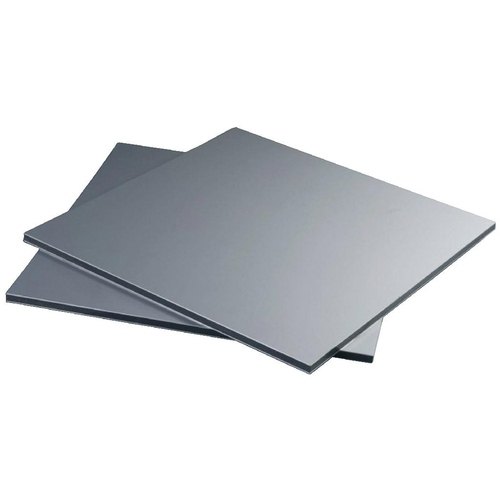 Aluminum composite material (ACM) panels, also known as aluminum composite panels (ACP) are popularly used for cladding and facades for architecture due to their versatility and aesthetic appeal. A building facade is one of the things that makes a building stand out from other structures around it. It is the first thing people notice when they see a construction.
Aluminum composite material (ACM) panels, also known as aluminum composite panels (ACP) are popularly used for cladding and facades for architecture due to their versatility and aesthetic appeal. A building facade is one of the things that makes a building stand out from other structures around it. It is the first thing people notice when they see a construction.
While there are different materials, such as wood and steel, that can be used to add that unique feel to your building, they do not have an aesthetically pleasing face and are not as easy to work with as ACM. They are not just stunningly beautiful; these panels are also durable and rigid but lightweight, making them easy to install and ideal for various applications.
Toronto has a semi-continental climate. The city experiences a range of weather conditions, including harsh winters with freezing temperatures, heavy snowfall, lightning, and frequent temperature fluctuations. These weather factors can challenge the longevity and appearance of building materials. ACM is the only material that can withstand these extreme weather conditions.
Understanding ACM Panels
Aluminum composite panels are made of two thin aluminum sheets bonded to a non-aluminum core. ACM is commonly used in the construction industry for internal and external wall cladding or partitions, machine coverings, facades, container construction, etc.
ACM is a popular choice among architects due to its lightweight, and this is because it is made of aluminum and a small-density plastic core material which makes it less heavy but has the same rigidity and thickness as other materials. The lightweight nature of ACM allows for easy molding into various shapes and can be processed using standard tools.
ACM Panels: Durability in Toronto’s Climate
Toronto experiences frequent and extreme weather events. These extreme weather conditions pose a serious challenge to buildings. The heat from the sun can dry out or damage building structures quickly and snow can lead to cracking and collapsing roofs.
Toronto is projected to have around 66 days with temperatures exceeding 30°C by 2040-2050. This means that it is important for builders to understand the risks of extreme weather and take the necessary steps to weatherproof buildings. One of the best ways to do this is to choose building materials that can withstand the harsh Toronto climate, such as aluminum composite panels.
ACP are designed to meet the highest industry standards. They have fluorocarbon coatings that make them strong enough to handle extremely high temperatures, harsh weather, moisture, UV radiation, etc. Their durability helps prevent issues common with other materials, such as fading, warping, and corrosion. In short, ACP can maintain their structural integrity and appearance over time.
Maintenance Practices for ACM Panels
Aluminum composite panels are durable, no doubt, but they still need regular maintenance and cleaning to ensure the long-term quality of the panels. One of the common mistakes people make is the assumption that since it frequently rains in Toronto, accumulated dirt will be washed away. While that is true, it is not always sufficient; ACP still need to be manually cleaned.
And fortunately, the maintenance of aluminum composite material is pretty easy. Generally, the frequency of cleaning varies based on the level of contamination and the building’s location. Avoid using corrosive items to scrub the painted surface of the material, and do not clean when the sun’s UV is high.
Use a mild detergent and a soft cloth to clean in a circular motion from top to bottom.
It is advisable to perform the cleaning process in small sections to prevent detergent residue. For cleaning a large area, select a small test board for testing before proceeding with the entire area.
Protection Against Environmental Factors
Use warm water when diluting the detergent to prevent surface damage and incomplete dirt removal. Wait 40-45 days after using a sealant before removing the protective film to prevent stains from solidified sealants on the surface.
Only a soft cloth or sponge is ideal for cleaning the surface of the aluminum composite panels to avoid scratching the panels’ paint. Cleaning solutions containing potassium hydroxide or caustic soda should be completely avoided as they can lead to the peeling of the paint and subsequent corrosion.
Choose Canadian Plastics and Belting Inc. for ACP
The durability and easy maintenance are some of the advantages that make aluminum composite panels popular among architects. If the simple maintenance instructions in this article are followed, you can extend the life of your ACM and keep its appearance intact even in the face of the Toronto climate. If you need aluminum composite panels for your next project, talk to the team at Canada Plastics and Belting Inc. We have a wide range of high-quality ACM panels for your needs. Contact us today to learn more about our products.
